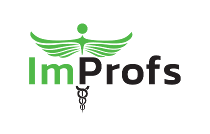Work experience on resume
In the competitive job market, your resume is often the first impression you make on a potential employer.
Therefore, it is crucial to present your work experience in a way that stands out and accurately reflects your abilities and accomplishments.
Here are some proven strategies for effectively putting your work experience on your resume:
- Focus on recent and relevant experience: Your most recent 10 to 15 years of experience are usually the most relevant to your prospective employer.
They show your current skills, accomplishments and potential.
Be selective and only list experiences that are relevant to the job you are applying for.
Remember that quality is more important than quantity. - Clarity, relevance and evidence: Employers are interested in what you can do and what you have accomplished.
Make sure you clearly state your responsibilities and accomplishments in each role.
Whenever possible, back up your accomplishments with data and examples. - Structured and scan-friendly layout: Use a clear structure in your resume.
Bullets are a great tool to make your resume easily scannable, but use them wisely.
Too many bullet points can dilute your message. - Customize your content: Tailor your resume to what the employer is looking for.
Instead of a simple list of past job titles, focus on responsibilities and results that match the needs of the prospective employer. - Avoid excessive jargon: While industry-specific terms can be important, overuse of jargon can be daunting, especially for non-specialist members of the hiring team.
Make sure your resume is accessible to all potential readers. - Show your skills, don’t just list them: Like the famous painting “La trahison des images” that shows a pipe but says, “This is not a pipe,” your skills should be demonstrated and not just listed.
Give examples of how you used your skills in a work context. - Address missing relevant experience: If you lack certain direct experiences, compensate by highlighting related activities or skills.
Highlight transferable skills or experiences, such as leadership roles in volunteer work, that can be equally compelling. - Check your writing style: A resume should be easy to read and engaging.
Use varied language and consider getting feedback from others.
A well-written resume can make a big difference. - Mention recommendations or references: Positive recommendations or references can be a powerful addition to your resume and provide external validation of your skills and accomplishments.
- Proofread: Finally, make sure your resume is free of typos and grammatical errors.
These can detract from your professionalism.
If you follow these guidelines, you can create a resume that effectively showcases your work experience, catches the attention of potential employers and increases your chances of getting a job interview.
Remember that a resume is more than a list of jobs; it is a personal marketing tool that, if put together properly, opens doors to new career opportunities. Contact us for more information! Email info@improfs.nl or use the comment form below.






